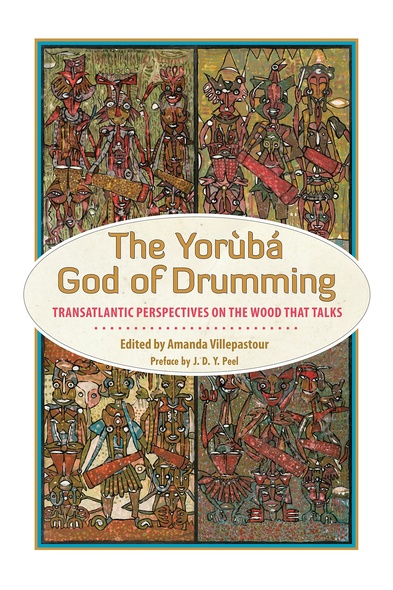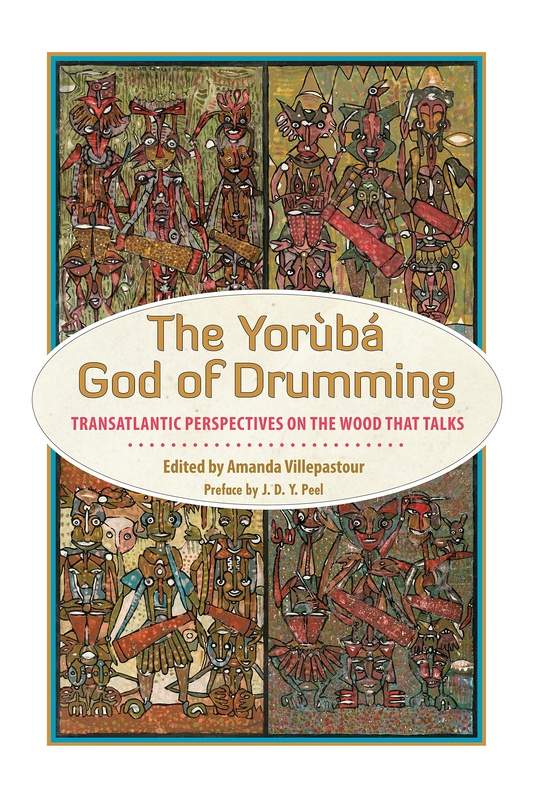
The Yoruba God of Drumming
Transatlantic Perspectives on the Wood That Talks
As one of the salient forces in the ritual life of those who worship the pre-Christian and Muslim deities called orishas, the Yorùbá god of drumming, known as Àyàn in Africa and Añá in Cuba, is variously described as the orisha of drumming, the spirit of the wood, or the more obscure Yorùbá praise name AsòròIgi (Wood That Talks). With the growing global importance of orisha religion and music, the consequence of this deity’s power for devotees continually reveals itself in new constellations of meaning as a sacred drum of Nigeria and Cuba finds new diasporas.
Despite the growing volume of literature about the orishas, surprisingly little has been published about the ubiquitous Yorùbá music spirit. Yet wherever one hears drumming for the orishas, Àyàn or Añá is nearby. This groundbreaking collection addresses the gap in the research with contributions from a cross-section of prestigious musicians, scholars, and priests from Nigeria, the Americas, and Europe who have dedicated themselves to studying Yorùbá sacred drums and the god sealed within. As well as offering multidisciplinary scholarly insights from transatlantic researchers, the volume includes compelling first-hand accounts from drummer-priests who were themselves history-makers in Nigerian and Cuban diasporas in the United States, Venezuela, and Brazil. This collaboration between diverse scholars and practitioners constitutes an innovative approach, where differing registers of knowledge converge to portray the many faces and voices of a single god.
Awarded a Commendation in the British Forum for Ethnomusicology Book Prize 2016:The Yorùbá God of Drumming is a multifaceted book with an emphasis on collaboration, deeply immersed in Yorùbá studies. It shows meticulous attention to detail and is densely referenced, with a strong sense of passion for the subject. It supports writing from practitioners whose voices might otherwise not be heard, including them as the authors rather than informants, showing impressive editorial skill in making this a coherent book while retaining a diversity of experience and communication styles.
While each chapter offers a unique perspective, the authors’ combined voices reveal an intricate and dynamic Yorùbá deity. Undergraduate courses in religious studies, history, gender studies, folklore, ethnomusicology, linguistics, and anthropology will find valuable methodologies and content. The book will also appeal to musicians and orisha devotees interested in understanding Àyàn and Añá through the experiences of both practitioners and scholars.
This volume is a remarkable collection of essays, in which scholars of diverse disciplines, nationalities, and regional specializations study transatlantic Yorùbá music and religion through the lens of the spiritual power invested in its drums. The result is a uniquely broad and nuanced portrait of a powerful expressive tradition that has thrived vigorously in the New World, even as it struggles to survive in its ancestral homeland.
Far more than providing yet another addition to the genre of ‘single orisha volumes,' Villepastour’s collection raises the bar for such enterprises. In focusing on perhaps the most mysterious and ill-understood entity in the circum-Atlantic congeries of ritual practices that hark back to what, by the late nineteenth century, gradually became known as Yorùbá religion, The Yorùbá God of Drumming presents both a major empirical contribution and a model for integrating the voices and perspectives of scholars and practitioners/musicians alike.
Amanda Villepastour is a lecturer in the School of Music at Cardiff University. Her first monograph is titled Ancient Text Messages of the Yorùbá Bàtá Drum: Cracking the Code.




